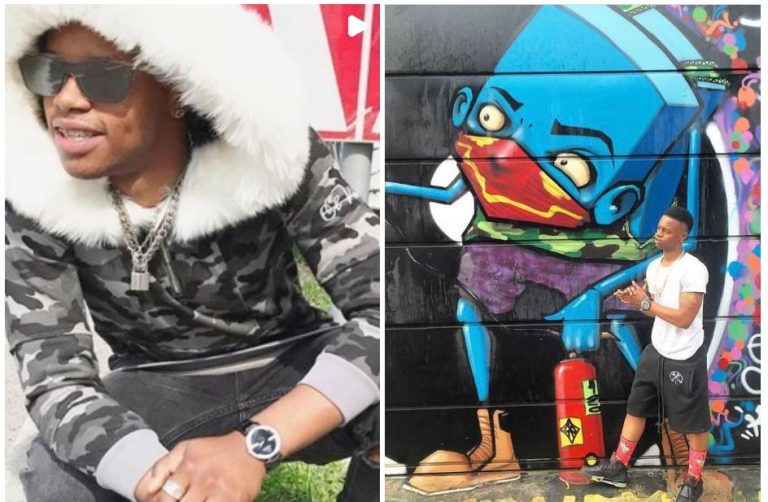Silento’s estimated net worth in 2025 is around $500,000, which is surprisingly small for someone whose first single once served as the soundtrack for millions of school dances, sporting events, and social media loops. When Richard Lamar Hawk posted the song “Watch Me (Whip/Nae Nae)” to YouTube at the age of 17, it quickly gained popularity due to its lively beat and dance-instruction lyrics. With more than a billion views, the video established Silento as a cultural icon for a new wave of entertainers who prefer digital platforms.
But the tale of that success has taken a more sinister turn in the last ten years. Using a time when streaming services and user-generated content could propel teenagers into stardom virtually overnight, Silento’s early ascent was incredibly successful. Following the unexpected success of his song, Silento signed with Capitol Records, which allowed him to appear on prominent TV shows and gain widespread recognition among Gen Z viewers. His attendance at youth-focused events and brand-friendly showcases solidified his status as a marketable face for a social and musical movement, and the commercial impact was substantial.
Silento Net Worth and Personal Profile (2025)
| Category | Details |
|---|---|
| Full Name | Richard Lamar Hawk |
| Stage Name | Silento |
| Date of Birth | January 22, 1998 |
| Birthplace | Stone Mountain, Georgia, United States |
| Profession | Rapper, Songwriter, Performer |
| Breakthrough | “Watch Me (Whip/Nae Nae)” (2015 viral hit) |
| Notable Labels | Capitol Records, BB&R Enterprises |
| Estimated Net Worth | $500,000 (2025) |
| Legal Status | Serving 30-year prison sentence since June 2025 |
| Key Projects | Fresh Outta High School, SilentoMOB, Bars Behind Bars |
| Awards | Soul Train Music Award (2015), Seoul Music Award (2017) |
However, Silento was negotiating an internal storm behind the camera and viral metrics. He later disclosed in open interviews that he had battled depression for a long time prior to becoming well-known. His career was characterized by instability due to this emotional burden and the relentless pace of instant celebrity. His experience is especially comparable to that of other online-born artists who were overtaken by fame before they had established themselves.
Fresh Outta High School, which Silento released in 2018, was followed the following year by a sequel. The success of his debut single was not duplicated by these mixtapes, despite their mediocre reception. His music career started to subtly fade away from the spotlight, despite a few cameos in TV shows and joint ventures.
His public conduct became more unpredictable during the pandemic. He was arrested several times in 2020 alone, including for speeding at 143 mph in Atlanta and for allegedly seeking a girlfriend while swinging a hatchet inside a stranger’s house. Even though these events were strange and worrisome, they were part of a growing emotional breakdown that his team later linked to untreated mental health conditions. He had been “suffering immensely,” according to his publicist, who urged the public to show compassion instead of condemnation.
These difficulties tragically came to a head in early 2021 when Silento was taken into custody for the shooting death of Frederick Rooks, his cousin. Authorities claim that after driving Rooks to a Georgia suburb, he shot him several times before fleeing the scene. In the end, GPS tracking, surveillance footage, and forensic evidence connected him to the crime. Following years of court cases, Silento entered a guilty but mentally ill plea in 2025 and was given a 30-year prison sentence for voluntary manslaughter and associated offenses. A plea deal included the dropping of a murder charge.
Even though his incarceration has now shaped his life, the relics of his early success still bring in a respectable income. Revenue is still generated by “Watch Me (Whip/Nae Nae)” streaming royalties and associated licensing. Even though this passive income has drastically decreased from previous years, it is still the main factor preventing his net worth from falling even lower. Notably, he was able to connect with a niche audience looking for authenticity in music with his mixtape Bars Behind Bars, which was released just before sentencing and was an emotionally raw exploration of his journey.
Once full of possible endorsements and live appearances, his financial history has been drastically diminished by legal fees, brand partnerships ending, and distribution agreements being put on hold. His catalog’s continued success, despite these limitations, is a testament to the enduring cultural impact of his breakthrough single. Silento’s earnings are linked to a moment that was remarkably successful at ingraining itself in the public consciousness, much like other viral artists who momentarily captured lightning in a bottle.
Silento’s story serves as a warning that is remarkably similar to other narratives of short-lived fame, especially those that are based on youth and digital virality. The vulnerability of early stardom in the absence of proper mental health frameworks is particularly evident. In addition to being tragic, his decline from a well-known artist to a warning footnote in discussions about criminal justice reflects a structural inadequacy to assist artists who are caught between trauma and immediate fame.
There has been a mixed reaction from the public to his sentencing. Some fans lament his passing and recall dancing to his song at school functions, while others blame the legal system for not stepping in sooner. His tale, which is intricately entwined with both public acclaim and personal hardship, now serves as a multi-layered lesson in notoriety, vulnerability, and repercussion.
Silento’s legacy will undoubtedly continue to be discussed in both mental health and entertainment circles. While his fall demonstrated how quickly that same system can collapse when pressure and pain are left unchecked, his rise demonstrated how quickly someone can become a phenomenon. His tale, which is full of both inventive genius and unforgivable errors, serves as a sobering reminder that success, particularly in the absence of assistance, is never a guarantee against failure.


